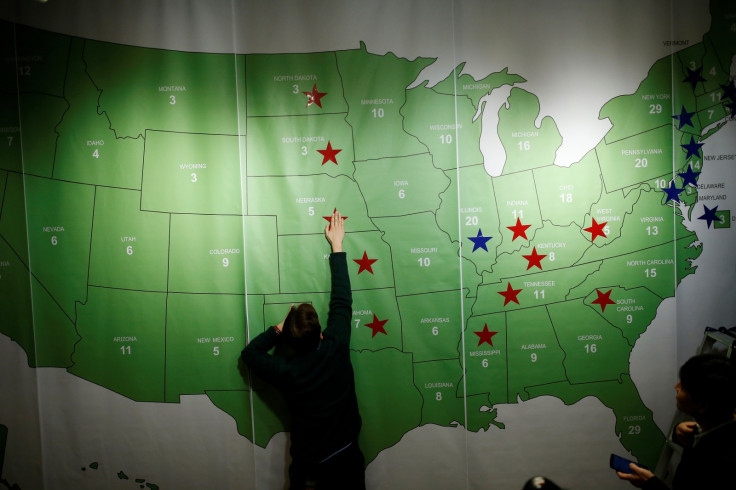How do you become an Electoral College voter?
President-elect Donald Trump will be handed power on 19 December by electors who cast final 2016 vote.
The fact Democrat Hillary Clinton won the popular vote in the 2016 election, yet failed to secure the presidency, dramatically underscores the importance Electoral College voters play in American democracy.
The college electors are the ones who actually vote the president into power. On 19 December America's 538 electors will meet in state Capitol buildings and State Houses throughout the country to cast the final ballots in the 2016 election. But how does someone become an elector in this important institution?
Each state is given a baseline of three electors who can vote in the college, but states are then allotted more electors based on population. During the presidential primary campaign each party selects who they want to represent them in the college.
The methods vary from state to state, but it includes nominating electors at state political party conventions or by a vote by the state party committee. People can be nominated to recognise their party loyalty, and the roll can extend to elected officials, state party leaders, or people with personal connections to the presidential candidate as well. In some states, like Texas, people can run to become an elector. Ultimately it's up to each party in every state to decide.
An elector represents a voting district. However, since 1824, a majority of states switched to a winner-take-all method that gives all electoral votes in the state to whichever candidate gets a majority of the state-wide popular vote. In this way, the popular vote is refracted through the prism of the Electoral College.

One Republican elector in Dayton, Texas, named Art Sisneros has stepped down because he refuses to vote for President-elect Donald Trump. In a blog post, Sisneros debates whether direct democracy – where every citizen votes for the candidate of their choosing – or the Electoral College system is preferable. He concludes that the Electoral College is broken.
Right now some Democratic electors are trying to convince 36 of their Republican counterparts to become what are called 'faithless electors' and cast their vote, not for Hillary Clinton, but for a third candidate Republican during the final vote. This unlikely, and unprecedented, move would then send the decision to the House of Representatives, which is controlled by the Republicans.
The Associated Press got in touch with 330 of the 538 total electors and interviewed them about whether they would deny Trump their vote. Many seemed frustrated with the electoral process in the US, but both Republicans and Clinton-backing Democrats would have to forge a massive alliance to turn the tables on Trump. They would cause a constitutional crisis in the process.
There are states where laws can impose fines on 'faithless electors' and electors can also be replaced if they cast a vote contrary to the popular vote.
At last count Clinton gained more than 2.8 million votes from the popular vote – ballots cast by individual Americans – than Trump. It marks the second time since 1888 (the first was in 2000), that a candidate who won the presidency didn't get the most popular votes.
© Copyright IBTimes 2025. All rights reserved.






















